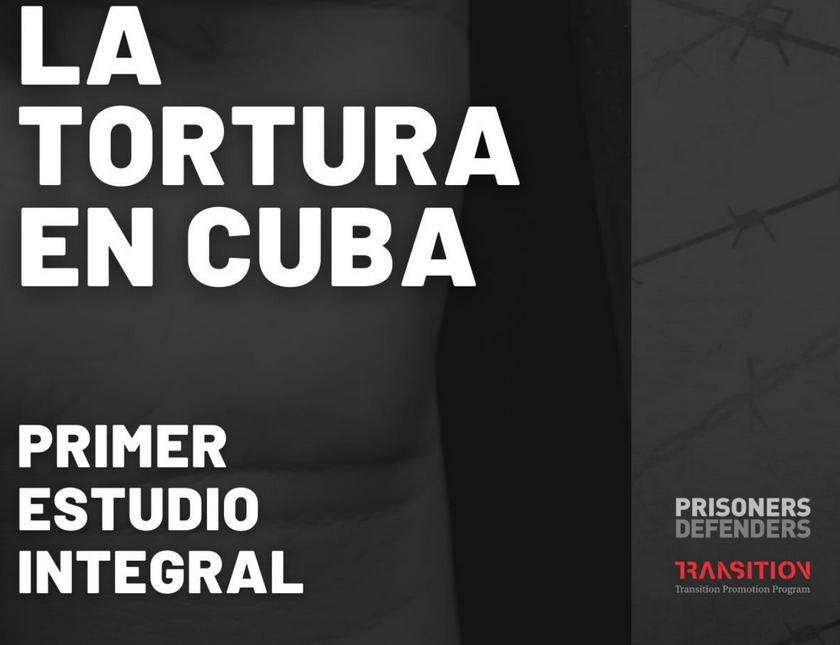Torture in Cuba - First Comprehensive Study

By: Prisoners Defenders - 30/05/2023
Guest columnist.Share:

I. INTRODUCTION TO THE STUDY AND TO THE COMPLAINT
This study has been developed using a sample of 181 political prisoners, taking into account as the universe the people who have been on the list of political prisoners for the last 12 months (1,277 political prisoners, April 2022 to March 2023). The methodology combines quantitative methods (questionnaires with closed questions); and qualitative methods (open-ended questions, in-depth interviews and research) on the legal, physical and psychological status of the political prisoners studied, including information regarding acts of torture and inhuman and degrading treatment against the defendants.
First-hand sources in direct contact with the defendants, who have been direct witnesses of the situations, have been used for this study. This study has made use of a variety of sources of information,such as those listed below:
▪ Political prisoners who are recognized human rights activists who share a cell or prison compound with
the exposed cases.
▪ Blood relatives and first level relatives of political prisoners.
▪ The political prisoners themselves, in case they are in situations of restriction of freedom that do not
involve internment in a penitentiary center.
▪ Political prisoners who have recently been released.
▪ Other first-level relatives who care for prisoners who do not have alternative family members.
Some of the cases have been reported and documented using a variety of the aforementioned sources.
A total of 181 cases of torture/maltreatment have been studied and documented. Tabulated responses
have been obtained from 168 of these cases through an online form with 38 response fields, which allows
for extrapolation and statistical analysis, as well as the delivery of an analytical result in an Excel file format
with the results of these 168 statements. Herein, interested parties have been able to document at least 15 patterns of ill-treatment and torture:
1. Deprivation of medical care among political prisoners.
2. Forced labor and work that is not related to their status as a criminal defendant or convicted person.
3. Highly uncomfortable, harmful, degrading and prolonged positions.
4. Prolonged solitary confinement.
5. Use of temperature as a torture mechanism.
6. Physical aggressions.
7. Abnormal driving to locations unknown to inmates and family members.
8. Intentional disorientation.
9. Deprivation of liquids and/or food.
10. Intentional sleep deprivation.
11. Deprivation of communication with family, defense and relatives.
12. Threats to them, their integrity, their safety and that of their loved ones.
13. Display or threatening exhibition of weapons or elements of torture.
14. Intentional subjection to anguish, grief or uncertainty about the situation of a family member.
15. Humiliation, degradation and verbal abuse.
«The opinions published herein are the sole responsibility of its author».